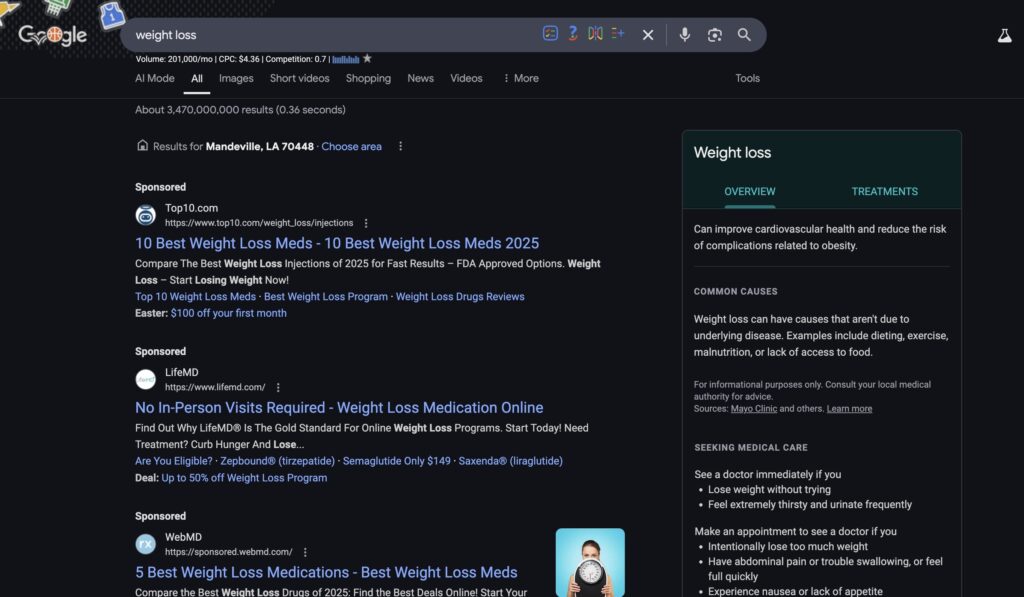Worst Niches To Avoid As A Beginner Blogger
A blog niche defines your audience and influences how you earn income from your site. When you start blogging, it is very important to choose a niche where there is genuine interest and room for growth.
A bad niche can result in low demand from readers, stiff competition, and limited ways to make money. I learned this lesson early, and my experience shapes the advice I share today. More about that later.
We’ll look into the key characteristics of the worst niches to choose as a beginner blogger and jump into real-world examples that often trip up beginners. I will provide guidance on what to look for and offer alternatives for those just starting out.
By understanding the challenges, you can make informed decisions and focus your efforts on a topic you enjoy and that offers real potential for success.
Choose Your Niche Wisely!
- Picking a tough niche can slow you down before you even get started.
- Super crowded topics make it hard to stand out or rank on Google.
- Niches with little demand mean you’ll write but nobody will read.
- Topics that need experts, like medical or legal, are higher risk if you’re not qualified.
- Some niches take a lot of money to grow, which adds stress for beginners.
- Boring topics will drain your energy—choose something you care about.
If it’s fun for you, it’s easier to bounce back when things get tough.
Key Characteristics of a “Bad” Blog Niche
There are some clear signs when a niche may not be the best choice for a beginner. I have noticed several recurring traits:
- Low Demand: Some topics, like collecting vintage bottle caps, have little audience interest. With few people searching for related content, building an active readership becomes challenging. Low demand makes it very hard to attract readers and generate income.
- High Competition: Overcrowded fields such as cryptocurrencies or credit cards mean established sites dominate search engine results. For new bloggers, getting noticed in these areas is particularly difficult.
- Limited Ways to Earn Money: Certain niches might engage readers, but they do not convert well to revenue. For example, in fields like programming, users may seek quick answers without spending much time engaging with display ads or other revenue mechanisms.
- Lack of Passion or Expertise: Choosing a topic based solely on potential earnings, rather than personal interest or knowledge, can lead to burnout. It often results in content that does not resonate with readers, affecting long-term success.
These factors create an environment where even the hardest work might not pay off. My aim is to help you understand these pitfalls so that you can avoid similar problems in the future.
Real-World Examples of Poor Niches
Not every niche that shows promise on the surface will work for a new blogger. Some areas, despite having an extensive amount of information available, are notably difficult to succeed in:
- Health and Wellness: This niche attracts widespread interest. However, it is dominated by large brands, government sites, and commercial companies. Even if you have a strong background in the field, competing on search engine rankings can be overwhelming.
- Massively Multiplayer Online (MMO) Gaming: The MMO niche attracts avid gamers, many of whom follow established influencers and content creators. New blogs can struggle to capture attention in such a crowded field.
- Legal: The legal niche is highly competitive. With professionals and government resources setting the tone, new bloggers may find it nearly impossible to rank well or attract a sizable audience, even with expertise in the field.
There are exceptions. For example, if you are a local business owner, a focused niche may allow you to benefit from local SEO strategies. This can carve out a smaller but effective market that is more receptive to your content and services.
Finding Your Way Through High Competition Niches

Picture this: Do you remember that scene in the movie, ‘The Perfect Storm’, where they turned back to go home and ran into that “Monster Wave?” For a brief moment, as the sunlight peaked through the ominous clouds, all seemed hopeful. Then, they caught a glimpse of a wave as tall as a skyscraper causing them to fear for their life.
This is the feeling that can overwhelm you when competing against these massive websites, to the point of capsizing. The “big dogs” have teams of writers and cover many topics.
The answer is to become laser focused on a highly specific topic to narrow down your audience better. People are looking for solutions to their own unique problems that sometimes get overlooked by the larger well-established sites.
High competition can be daunting for anyone new to blogging.
Established sites and trusted brands often have a head start with years of content and loyal audiences. This environment makes it very hard for beginner blogs to get noticed.
In niches like health and wellness or legal advice, the competition is fierce. Search engine algorithms tend to favor long-standing, authoritative sources.
I experienced this firsthand when I chose weight loss as my first niche.
Despite my enthusiasm and effort, my posts rarely reached the first page of search results. My seemingly compelling content ended up buried under layers of competition from well-known brands and respected organizations.
For new bloggers, it is important to understand that while these niches might have a large audience, the room to thrive is limited.
A shortage of unique angles combined with the overwhelming presence of established players means that getting noticed can be extremely challenging.
Low Demand Niches and Market Size Issues
Niches with low demand often seem appealing because of reduced competition, but they come with their own challenges. Topics like collecting vintage bottle caps or other obscure hobbies may generate some interest.
The audience is usually small, meaning traffic numbers will remain minimal no matter how good the quality of your content.
From a monetization perspective, fewer site visits translate to lower ad revenue and fewer opportunities for affiliate marketing or product sales.
Even if you produce great content, success is not guaranteed if the chosen niche simply isn’t popular enough to draw a substantial audience.
It is necessary to balance niche uniqueness with market size. For beginners, finding that balance is critical because the overall financial success of a blog often depends on having a large and engaged audience.
If the audience pool is too narrow, despite dedicated effort, the blog might always struggle with slow growth and only minimal engagement.
Monetization Roadblocks in Certain Niches

Most new bloggers eventually aim to earn income from their sites.
Some niches may limit revenue opportunities no matter how much value the blog provides. For instance, while programming blogs might attract an engaged following, the way readers interact with the content often leads to low ad revenue.
This situation arises because readers typically seek quick, targeted solutions and then leave without engaging with supplemental offers or sponsors.
Advertisers generally prefer niches where visitors spend more time browsing, clicking on sponsored content, or purchasing products. In niches that encourage quick interactions, the potential income from ads and affiliate links is often much lower.
Understanding the revenue landscape in your niche before getting started can prevent future disappointments.
It is very important to consider how readers engage with content and whether the niche supports various revenue streams such as email marketing, product sales, or sponsorship opportunities.
Lack of Passion or Expertise: A Recipe for Burnout
Choosing a niche solely based on the potential for financial gain, without a genuine interest or background in the subject matter, often leads to burnout. Creating quality content requires real dedication and enthusiasm.
When I started blogging in a niche that did not truly excite me, I found it extremely challenging to maintain the creative energy needed for successful content creation.
Passion and expertise matter a great deal.
They shine through in your writing and help build trust with your audience. Without that personal connection, the content can end up feeling forced, resulting in lower engagement and eventually a significant drop in motivation.
Sustainable blogging is built on topics that you genuinely enjoy discussing and researching over the long haul.
My own experience taught me that consistent and engaging content comes only from subjects that resonate with me personally.
Without this connection, maintaining a blog can feel like an uphill battle, especially when you face the inevitable challenges of content creation and audience engagement.
Personal Experience: My First Niche and Its Challenges

(For example, the broad keyword for weight loss shows 201,000 searches per month!)
As I mentioned earlier, my very first blog niche was centered around weight loss. I was excited and believed that the high demand would offer a guaranteed path to success. So, after over a year of regular posting, my efforts did not translate into any significant traffic or earnings.
I constantly battled against massive, established brands and authoritative government sites that dominated the niche. Even worse, their posts ranking on page 1 were of very low quality compared to mine. This led to feelings of imposter syndrome that was hard to shake off.
The low visibility of my posts was disheartening. Despite posting quality content and trying various SEO techniques, my site either ranked far beyond the first page of search results or disappeared entirely.
This experience taught me the importance of not only selecting a niche with a large audience but also considering the level of competition within that area.
This challenging period eventually pushed me to reconsider my niche.
I started looking for a topic where I had genuine interest and where the competition was less fierce.
That switch has made a big difference in my current blogging success, and it reinforced the idea that passion and strategic planning are key ingredients for a sustainable blogging endeavor.
Learning From the Challenges: Alternatives for New Bloggers
The adventure of successful blogging involves recognizing pitfalls and selecting niches that allow for gradual, steady growth. Here are some considerations if you are just getting started:
- Focus on specific subtopics: Instead of broad niches like health and wellness, consider more focused areas where you can build authority over time. A narrower subject might help you better connect with your audience in a meaningful way.
- Assess competition: Spend time researching established sites in your prospective niche. If the top search results are dominated by major organizations, it might be a sign that this area is too crowded.
- Evaluate ways to earn income: Before choosing a niche, explore whether it supports multiple revenue streams. Think about social media engagement, affiliate markets, and potential sponsor interest.
- Follow your passion: Align your niche with your interests and expertise. Your genuine enthusiasm will help you maintain consistency in creating engaging content over time.
By understanding and applying these considerations, you can set realistic expectations for your blogging journey.
As a new blogger you will benefit best from niches that provide room for growth and offer opportunities to expand your reach step by step instead of facing overwhelming barriers from the start. Start at the bottom and work your way up.
More Strategies for Sustainable Blogging
Adding to the considerations mentioned above, there are several other strategies that can help you build long-term success in blogging. One effective approach is to invest time in connecting with your audience beyond just publishing content on your blog.
Engaging with your readers on social media platforms, participating in online communities, forums like Reddit/Quora, and networking with other bloggers can make a huge difference.
Speaking of blogger networking, Wealthy Affiliate has a talented pool of affiliate bloggers that are always willing and able to help. It’s a wonderful community overflowing with online entrepreneurs just like you. Read more about it in my comprehensive Wealthy Affiliate Review.
These relationships not only help you gain useful insights into what your audience really cares about but also open up new opportunities for collaboration.
Another important aspect is to continuously refine and adjust your content strategy. The blogging landscape is always changing, and staying flexible will help you pivot when needed.
This might mean experimenting with different content formats, exploring emerging digital trends, or even adjusting your posting schedule based on analytics feedback. Testing and learning from different approaches can help you pinpoint the strategies that resonate best with your specific audience.
Finally, don’t underestimate the importance of patience. Sustainable success rarely happens overnight. Building a loyal readership and creating content that truly makes an impact takes time, persistence, and continuous learning.
These additional strategies can help smooth the way and ensure that your blogging journey stays on track even when faced with challenges.
Identifying Opportunities in Crowded Markets
Even if a niche appears saturated, there are creative ways to approach it without directly competing with major brands.
For instance, focusing on local or very specific aspects of a broader topic might yield better results. If you are a local business owner, you can use local SEO tactics to rank within your region and target a more specific audience.
Ideas like regional guides, discussions on local issues, or coverage of specific community events often have fewer competitors and a more dedicated readership.
This strategy can provide you with a foothold even in competitive fields such as legal or health and wellness. It is about finding that small corner of the market where your unique voice can truly be heard and appreciated.
This approach requires thorough research and a clear understanding of your target audience. Make sure you know what they need and what larger sites might be overlooking.
Even in high competition niches, a unique perspective can help you carve out a space for success without having to go head-to-head with industry giants.
Building Long-Term Success in a Challenging Environment
Many beginner bloggers feel pressured to jump into what appears to be a popular niche without thinking about long-term sustainability.
I found that real success comes from building a loyal audience and creating content that addresses very specific queries or interests. Time and effort have a gradual effect on your blog’s performance.
Even if your first niche does not yield quick wins, the lessons you learn during that period are very important.
These experiences highlight the importance of adjusting strategies along the way, whether that means refining SEO practices, modifying your content focus, or even rethinking your overall approach.
Consistency, quality, and authenticity are fundamental to long-term success.
A well-researched niche that matches your personal interests sets a strong foundation for future growth. It may take longer to see the rewards, but this method often proves to be much more sustainable over time.
Avoiding the risks associated with poor niche selection can help redirect your efforts toward areas that support steady progress and offer a clearer path to achieving your blogging goals.
Final Thoughts
Starting a blog demands thoughtful decision-making, especially when it comes to selecting a niche. The worst niches often carry:
- low demand
- fierce competition
- limited ways to earn money
If you lack personal interest in the topic, maintaining your blog becomes an uphill battle, because nothing screams ‘fun’ like forcing yourself to write 1,500 words about something you couldn’t care less about.
Reflecting on my early struggles with weight loss blogging offers a clear lesson: the niche you choose must balance market interest with manageable competition.
A thorough assessment of demand, competition, available revenue streams, and genuine passion is essential for long-term blogging success.
I encourage you, as a new blogger, to research deeply, experiment patiently, and be willing to pivot when necessary. Every blogging journey is unique.
Avoiding common pitfalls and making strategic, informed decisions can save you time and effort in the long run.
Consider the factors discussed here when selecting your niche so that you can focus on building a blog that grows steadily and satisfies both your personal and professional aspirations.
Bottom line, your success in blogging is determined not just by following trends but by crafting a unique path that truly resonates with you and your audience.












